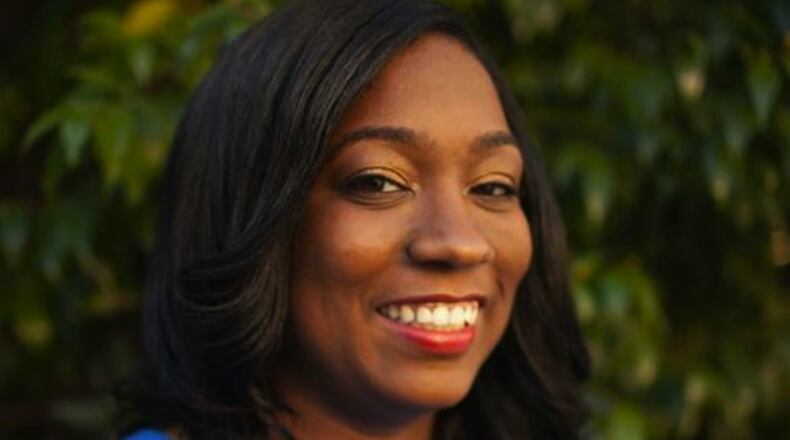After graduating from Stanford with an English degree and the University of Michigan with an MFA, Brit Bennett began writing nonfiction. When her essay “I Don’t Know What to Do With Good White People” was published by Jezebel, it reached over a million readers in its first week.
As a writer, Bennett has tackled hot button issues like systemic injustice, writing about racial segregation at swimming pools for The New York Times, and the evolution of black dolls for The Paris Review.
At 26, Bennett has been hailed as a literary virtuoso, landing on the 2016 National Book Foundation’s 5 under 35 list. In 2016, Bennett took her exacting analytical eye and augmented its capabilities to create the fictitious world of Oceanside, Calif., the setting of her debut novel titled “The Mothers,” which she will read from on Feb. 13 as part of A Cappella Books’ “Writers @ the Wrecking Bar” monthly fiction series.
“The Mothers” opens with Nadia Turner’s abortion. The 17-year-old has gotten pregnant by Luke Sheppard, a preacher’s kid whose athletic prospects were sidelined by a career-ending injury in college. Nadia, numb from the heartbreak of losing her mother to suicide and freed from the watchful eye of her emotionally absent grieving father, finds herself adrift, and the book is a study in the ripple effect that trauma can have on a tight-knit community.
After the first chapter, the story veers away from the expected tragic narrative of regret, and Bennett spins a story that is quietly anxious, vacillating from setting to setting in search of all the things Nadia is searching for, and the author treats the characters and their motivations with a lyrical tenderness that defies the expectations of how narratives about black life are supposed to be portrayed by writers and digested by readers.
“I wrote this book and I thought ‘this is really a book that will speak to black women’ and so far it has, but people of all different races and genders and age groups and nationalities tell me how this book resonates with them, and that’s something I didn’t foresee,” Bennett said during a phone conversation from her Southern California home.
Oceanside is loosely based on the town that Bennett grew up in, and the anxiety Nadia feels about her body is true to life — when Bennett was a teen, it seemed the worst thing that could happen to a young woman was getting pregnant because it closed the doors on the ability to escape. The novel, which the author worked on for “six or seven years,” presents her character with a different set of circumstances and opportunities, allowing her characters to fully explore their ambitions without pigeonholing them into stereotypes, creating spaces for the teens to bud into adulthood in a way that doesn’t verge on confessional but also strays away from victimization.
The friction between the inside and outside perspectives is what makes Bennett’s work fresh.
“I am really interested in the idea of choice, and what it means to really get to choose something … it hasn’t meant the same thing to everyone throughout time and across all communities. Sometimes people find themselves in the same situations but not everyone has the same means of access, the same ability to determine what would happen to them, and their future is based on the circumstances of race, and even economics,” Bennett explained.
The author also explores the perspective of how the concept of choice is refracted differently based on generation. Many of the conflicts and choices made in the novel aren’t based on race, even though it often informs the characters’ perspectives.
That is where the mothers come in. The mothers are the women of The Upper Room, the Turner family’s chosen house of worship and the hothouse for the friendship that unfurls between devout teenage worshipper Aubrey Evans and the rebellious Nadia Turner. In the novel, they function similarly to a Greek chorus, an omniscient narrator hovering, giving the intimate exchanges of characters some historical and societal context. At times, the group is doleful and elegiac, and on other pages, they are sharp and judgmental, but their primary function and contribution to the work is their ability to provide insight into members of the community.
At its core, “The Mothers” is about secrets, love, prayer, imperfections, limitations and womanhood, all painted by the author with language that is exacting and precise while allowing the experiences to remain universal even as it is tinged with wisdom.
Nadia finally escapes from her self-contained universe by attending the University of Michigan, but her father is a tether that calls her back during family emergencies and she is often pulled back to the town of Oceanside, forced to return to the claustrophobic space of The Upper Room.
With the publication of “The Mothers,” Bennett added a new voice to the conversation about societal expectations placed on women’s bodies by the black Christian community and the shame that comes with not meeting those standards. The author is a master at putting characters in physical spaces where they are forced to deal with one another, and the arc of the novel is a well-written portrayal of how the choices made during the coming-of-age period can devastate a body of believers in small-town America long after the initial conflict is resolved.
EVENT PREVIEW
Writers @ the Wrecking Bar: “The Mothers” by Brit Bennett
7 p.m. Feb. 13. Free. The Wrecking Bar Brewpub, 292 Moreland Ave. N.E., Atlanta. 404-681-5128, www.acappellabooks.com.
About the Author
Keep Reading
The Latest
Featured



